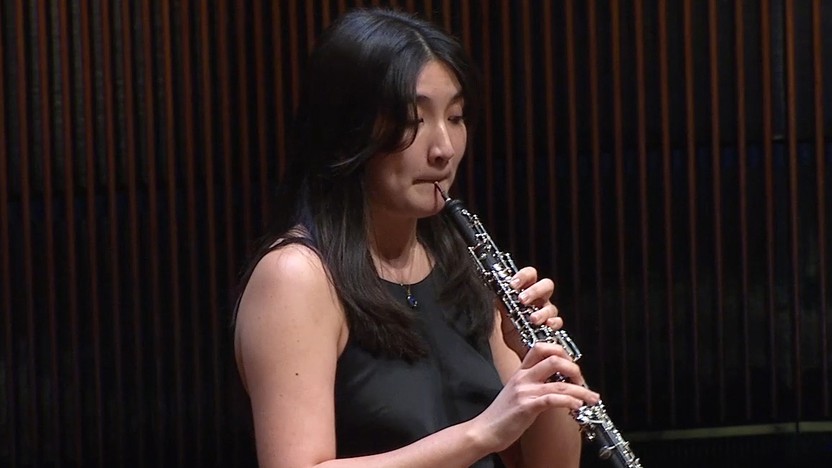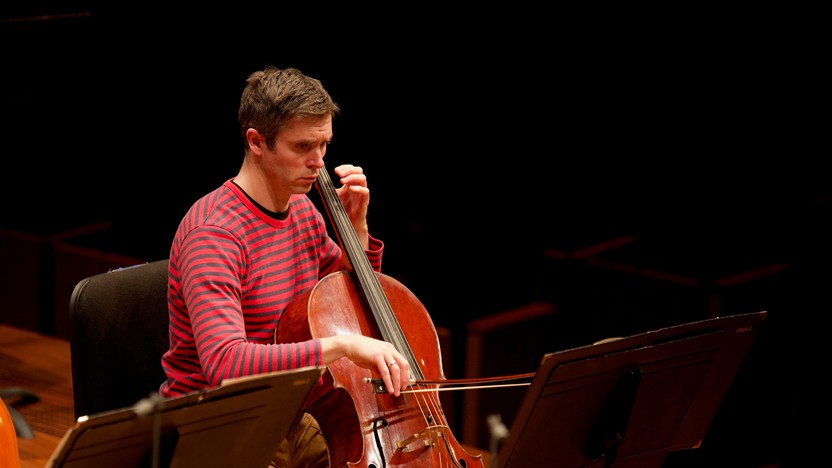Details
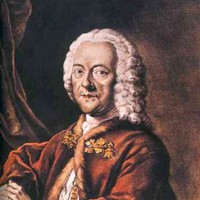
Georg Philipp Telemann
Overture-Suite, Les nations
Georg Phillip Telemann was the most respected German composer during his lifetime, influencing and overshadowing his slightly younger colleague, Johann Sebastian Bach. During Telemann’s years as a law student in Leipzig, he founded the Collegium Musicum that Bach eventually directed, and that hands-on practice with instrumental forms helped Telemann secure one of his first jobs with a duke in Eisenach, the same town where Bach had been born. Telemann eventually landed what was arguably the most prestigious post in all of Germany, directing music for the principal churches of Hamburg from 1721 until his death 46 years later.
Telemann composed more than 100 orchestral suites, and his efforts helped to establish that French tradition as a German mainstay. The French formula was to begin with an overture and then proceed through a series of dances, but in this example, Telemann veered away after the traditional overture (featuring the typical short-long “dotted” rhythms) and a pair of menuets with a delightfully quiet contrasting section. Kicking off a series of international scenes, the music for “The Turks” conjures the fearsome Janissary units of the Ottoman military, which traveled with musicians playing clangorous percussion. In “The Muscovites,” the sounds of pealing bells represent Moscow’s many churches. It’s less clear what exactly Telemann was parodying in his depictions of “The Swiss” and “The Portuguese,” and the references to “The Lame” and “The Runners” in the final movements are even more vague, although they offered a playful exercise in musical portraiture, with lopsided steps in “The Lame” contrasted against gliding strides in “The Runners.”
Aaron Grad ©2021
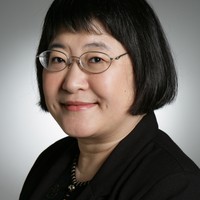
Chen Yi
Elegy for Solo Oboe (SPCO Commission)
My solo oboe work Elegy is commissioned by The Saint Paul Chamber Orchestra for its principal oboist Cassie Pilgrim who premiered the work at the Ordway Concert Hall in St. Paul, MN in November 2020. Since Cassie and I share the same cultural heritage from Southern China, my oboe solo piece written for her has strong influence from Cantonese folk music material, with the folk tunes in Yifan Mode, which sounds sad and sentimental. The solo piece expresses our deep nostalgia for our loved ones, as well as our painful mourning for thousands of people who lost their lives during the COVID-19 pandemic around the world.
Chen Yi ©2020
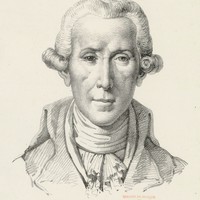
Luigi Boccherini arr. Friedrich Grützmacher
Cello Concerto in B-flat (arr. by Grützmacher)
Luigi Boccherini was a world-class cello virtuoso, famous for his concerts in Vienna, Paris and other musical capitals far beyond his homeland of Italy. A stint playing operas in Spain brought him to the attention of the Spanish king’s younger brother, Don Luis, who recruited Boccherini to become his court composer in 1770. Boccherini happily gave up the life of a touring musician and settled down in Madrid for his remaining years.
Boccherini wrote at least 13 concertos to feature himself as soloist, mostly during the itinerant early portion his career. This Concerto in B-flat is one of Boccherini’s most familiar works, but it is mainly known through the arrangement created by the German cellist and composer Friedrich Grützmacher. To bring Boccherini’s early Classical style in line with tastes at the peak of the Romantic era, Grützmacher beefed up the orchestration with two added oboes and expanded the structures liberally, incorporating music from other Boccherini concertos. He also swapped out the slow movement entirely, using the lovely Andante grazioso from Boccherini’s G-major Concerto instead. The virtuosic cadenzas are Grützmacher’s as well, along with many editorial details in the cello part. Boccherini’s original score still exists, and purists can seek out any of the increasing number of recordings that offer the historical perspective, but the hybrid Boccherini/Grützmacher concerto will always have a place in the repertoire of cellists who adore its heightened emotions and bountiful melodies.
Aaron Grad ©2021
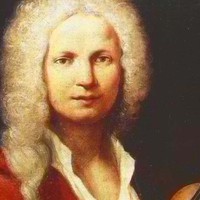
Antonio Vivaldi
Concerto in F for Violin, Two Oboes, Bassoon, Two Horns and Orchestra
Barbara Bishop, oboe
Kai Rocke, bassoon
James Ferree, horn
Patrick Pridemore, horn
Daria Tedeschi Adams, violin
(Duration: 15 min)
In the early decades of the eighteenth century, Northern Italy was a violin paradise, producing instruments, techniques and compositions that are still unrivaled. Born in Venice to a father who played violin professionally, Antonio Vivaldi capitalized on that wealth of talent and knowledge that surrounded him. More than any other composer, Vivaldi was responsible for spreading his region’s musical specialties out into the rest of Europe. Some of that spread happened through published sheet music, but just as important were the personal connections and hand-copied manuscripts that allowed brand-new Vivaldi scores to make their way to the likes of Johann Sebastian Bach, George Frideric Handel and Georg Philipp Telemann. One of the best music libraries was to be found in the German city of Dresden, a royal capital with a large orchestra that had been playing since 1548. The orchestra’s concertmaster, J. G. Pisendel, was sent to Venice to take violin lessons with Vivaldi in 1716, and their ongoing friendship brought a stream of new scores over the Alps in the years to come.
During that time when compositions were treated as living things (with none of the preciousness that now enshrines the work of a composer), Pisendel had no qualms with adjusting Vivaldi’s work to better suit his own talents and that of his large orchestra, which included oboes, horns and bassoon. The outer movements in Pisendel’s version of the concerto contain flashy violin decorations and the slow inner movement substituted a violin solo from a different Vivaldi concerto in C-minor. The version performed today by SPCO, edited by Olivier Fourés in 2015, restores the oboe solo in the second movement and more faithfully reproduces the colorful wind parts throughout the concerto alongside the original violin solo.
Aaron Grad ©2023
About This Program
Soaring winds and strings rendezvous on stage in a program that features a wide range of orchestral sound. Following the structured elegance of Georg Phillip Telemann’s march-like Overture-Suite, Les nations, flows a contemplative performance by Principal Oboe Cassie Pilgrim of Chen Yi’s Cantonese-inspired Elegy for Solo Oboe. Commissioned and premiered via livestream last season, this piece will be witnessed by in-person audiences for the first time. Cellist Richard Belcher is featured as soloist on Luigi Boccherini’s Cello Concerto in B-flat and a sextet of SPCO musicians will close the program with chamber music by Antonio Vivaldi.
All audience members are required to present proof of full COVID-19 vaccination or a negative COVID-19 test within 72 hours prior to attending this event. Masks are required regardless of vaccination status. More Information
Concerts are currently limited to 50% capacity to allow for distancing. Tickets are available by price scale, and specific seats will be assigned and delivered a couple of weeks prior to each concert — including Print At Home tickets. Please email us at tickets@spcomail.org if you have any seating preferences or accessibility needs. Seating and price scale charts for the Ordway Concert Hall can be found at thespco.org/venues.
Contribute
SPCO concerts are made possible by audience contributions.
Newsletter
For exclusive discounts, behind-the-scenes info, and more:
Sign up for our email club!

